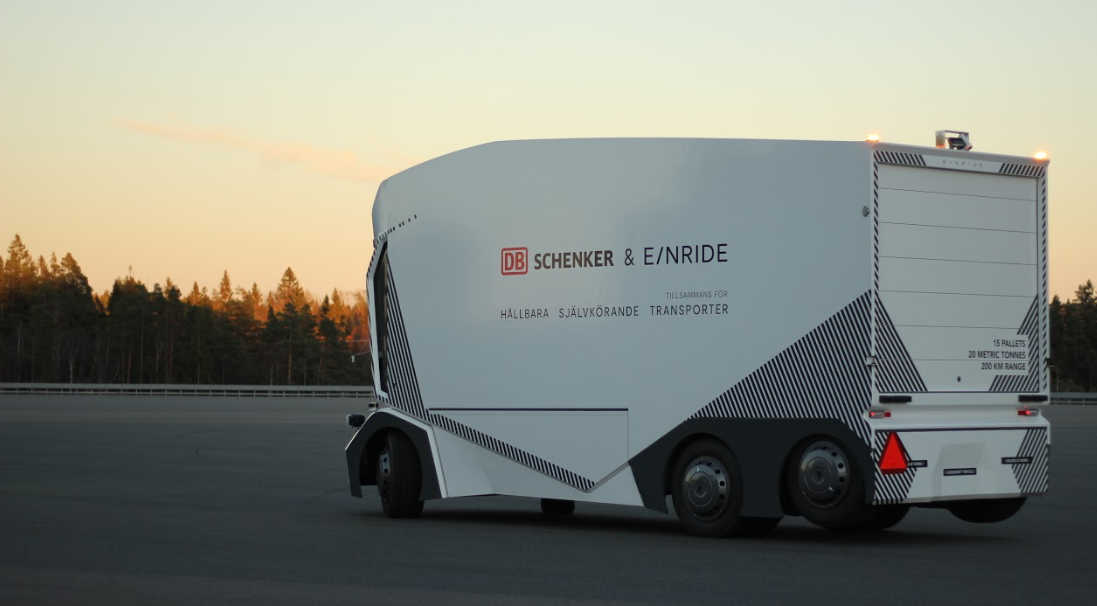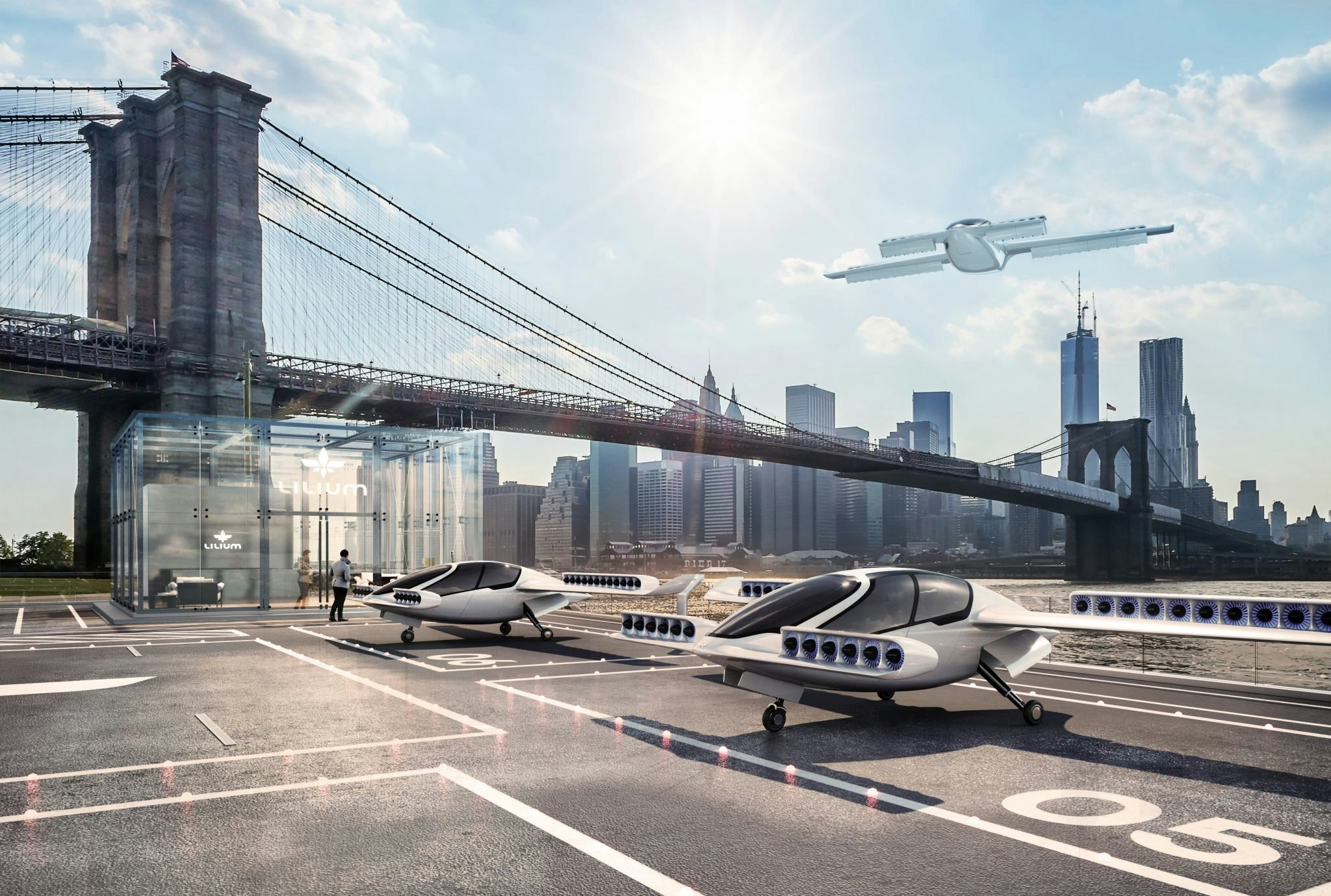Europe has had the first driverless electric truck on a public road, is on track to get a flying taxi and will soon have a $1bn battery farm to power a motorcade of electric cars.
But according to the CEO of Einride - a Swedish transport-disruptor - that is not enough to win, or even be a contender, in the global battle to decide the future of mobility and the automotive sector.
“The transport battle will be decided in the US, not here,” Einride's chief and founder, Robert Falck, tells Sifted in an interview.

“As proud as we are of our competency, Europe is becoming obsolete in developing the future of transport technology. We are doing pretty well in Sweden but that is mainly because we are a mini version of the US. The next battle will be about the automotive industry and China and the US are the ones fighting it,” Falck says.
Europe’s automotive sector directly employs 2.6m people and has some of the world largest carmakers such as Volkswagen, Renault and PSA. These companies collectively spend tens of billions on research and development.
But for Falck, most of the innovation in the industry really takes place in the US, not in countries such as France or Germany.
Electric driverless trucks
Despite this gloomy outlook, Einride has been an early leader in one automotive field at least: electric driverless trucks.
Truck companies such as Daimler, Tesla, Volvo Trucks and Otto are all investing heavily in self-driving trucks, but Einride has already proved its trucks can operate on public roads. When Tesla said it was working on an electric truck in autumn 2017, Einride had already been at it for a year.
Einride also has actual paying customers. Both the food chain Lidl Sweden and the German logistics company DB Schenker are early adopters. At DB Schenker the trucks are used for taking cargo back and forth between the logistics centre and the terminal in the Swedish town of Jönköping.
This was no easy feat, however, as many people have long thought the idea of electric trucks is a bit of a joke.
“The first year was absurd with the number of people who wanted to correct me,” says Falck.
It will work perfectly for delivering bags of crisps.
Tesla was also made fun of about the size of the battery needed to manage long distances with heavy cargo.
“It will work perfectly for delivering bags of crisps” as the chief engineer Nils-Gunnar Vågstedt at Swedish truck company Scania was quoted saying in December 2017 on the Swedish tech site Ny Teknik.
In the case of Einride, founded in 2016, it was not just the industry that was sceptical but also the Swedish media who for a long time more or less ignored Einride’s press releases until the beginning of 2018.
“That was pretty absurd. We are better known abroad than in Sweden. Since we launched in spring 2017 we have been mentioned in 3000 articles globally. In Sweden, the media coverage was long non-existent.”
Growing credibility
Things started to change in 2018 and when the Swedish transport agency agreed to have Einride’s driverless electric trucks running on public roads in spring 2019, the media frenzy was a fact.
Sifted asked Falck when he noticed that Einride - and the concept of its electric driverless truck - was finally gaining credibility.
He gives a modest answer: “If I am honest, the fact that you are asking that question is making me feel that for the first time.”
But he is also proud of what the company has been doing to move the sector forward. “We were the first to have a driverless electric truck on public roads and no one can take that away from us,” says Falck.
Working for Volvo Trucks
Falck used to work for Volvo Trucks developing the next generation of powertrains, but says that he never tried to promote the idea of electric driverless trucks at his old company.
“There are easier fights to win than that one,” Falck says. “There were strong financial incitements against it. I think it is a great company but at the same time, its trucks are responsible for 1-2 % of the carbon dioxide emissions globally.”
We did this to show that it is possible to build the solutions of the future. No one will be happier than me if the industry is forced to change.
According to Falck, the automotive industry in total are responsible for 7-8% of the emissions of carbon dioxide. His reason for starting Einride was in part to show that sustainable transport actually is possible.
“Einride was started with the purpose to annoy the industry. We did this to show that it is possible to build the solutions of the future. No one will be happier than me if the industry is forced to change,” Falck says.
At Volvo Trucks, things have changed since the Falck left the company. In autumn 2018 it unveiled its all-electric autonomous truck called Vera.
We were the first to have a driverless electric truck on public roads and no one can take that away from us.
Falck says he is happy with what Einride has achieved so far, with only 55 employees and about €10m raised in external capital from angels and entrepreneurs. He believes that the company now has reached a phase where the credibility of Einride is now making it possible to raise large sums of capital.
Falck is now looking to take the company to the next phase. One solution that he is keen to look further into is strategic partnerships, he says.


